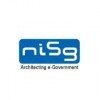
i
CORE EHS
39 CORE EHS Jobs

P&M Engineer
CORE EHS
posted 18hr ago
Job Role Insights
Fixed timing
Key skills for the job
Job Description
Education Qualification
The candidate must have a B.E./B.Tech degree in Civil or Electrical Engineering.
The candidate should have experience in handling hydraulic equipment and must come from the construction industry.
Role & responsibilities
1. Hydraulic Equipment Selection and Procurement
- Selection of Equipment: Assist in selecting the appropriate hydraulic equipment for the project, ensuring it meets the required specifications and can handle the tasks on-site efficiently.
- Procurement and Rental: Oversee the procurement or rental of hydraulic machinery and ensure that the equipment is suitable for the specific construction tasks, such as pile driving, excavating, or lifting.
2. Hydraulic Equipment Maintenance and Servicing
- Regular Maintenance: Develop and implement a preventive maintenance schedule for hydraulic equipment to ensure that it remains in good working condition and avoids unexpected downtime.
- Inspection and Troubleshooting: Conduct regular inspections of hydraulic systems (hoses, cylinders, pumps, valves, etc.) to identify potential issues before they lead to equipment failure.
- Repairs and Replacements: Diagnose and resolve issues related to hydraulic equipment, including fixing leaks, replacing hydraulic hoses, repairing cylinders, or addressing pump malfunctions.
- Hydraulic Fluid Management: Ensure that hydraulic fluids are properly maintained and replaced at regular intervals to prevent contamination and ensure optimal performance.
3. Operational Efficiency and Optimization
- Monitor Performance: Continuously monitor the performance of hydraulic machinery, ensuring it is operating at optimal efficiency. Keep track of fuel and fluid usage to improve cost-effectiveness.
- Optimize Equipment Use: Ensure that hydraulic equipment is being used efficiently and that operators are trained to use machinery in a way that maximizes productivity while minimizing wear and tear.
4. Safety and Compliance
- Adhere to Safety Standards: Ensure that all hydraulic equipment is operated in compliance with safety standards and regulations (e.g., OSHA, local safety regulations) to minimize accidents and ensure worker safety.
- Operator Safety Training: Train operators on safe handling and operating procedures specific to hydraulic machinery, including the proper use of controls and emergency shut-off systems.
- Hazardous Material Handling: Ensure proper handling, storage, and disposal of hydraulic fluids, oil, and other potentially hazardous materials in compliance with environmental and safety regulations.
5. Equipment Inspection and Quality Control
- Inspect Equipment Before Use: Conduct thorough inspections of hydraulic equipment before it is used on-site to ensure that all components (e.g., hoses, pumps, filters) are in good working condition.
- Quality Assurance: Ensure that all hydraulic equipment meets the projects quality standards and operational requirements.
- Monitor Equipment Wear and Tear: Track the condition of hydraulic equipment to determine when parts need to be replaced or serviced to prevent major breakdowns.
6. Documentation and Reporting
- Maintenance Logs: Maintain detailed records of all maintenance, repairs, and inspections conducted on hydraulic equipment. This includes tracking service schedules, parts replacement, and any incidents.
- Equipment Performance Reports: Provide regular reports on the status and performance of hydraulic equipment, including any downtime, maintenance issues, and recommendations for improvements.
- Track Equipment History: Maintain a history of hydraulic equipment usage, repairs, and issues to assist with future planning and improve decision-making related to machinery purchases and service schedules.
7. Cost Control and Budgeting
- Cost Management: Monitor and control the cost of operating hydraulic equipment, including maintenance costs, fuel, and spare parts.
- Budget Planning: Work with the project manager to develop a budget for hydraulic machinery, ensuring that expenses related to equipment operation, repair, and maintenance are planned for in advance.
- Evaluate Cost-Efficiency: Evaluate whether it is more cost-effective to rent or purchase specific hydraulic equipment based on project needs and duration.
8. Troubleshooting and Problem-Solving
- Quick Response to Failures: Be prepared to troubleshoot and resolve hydraulic equipment failures promptly to minimize downtime and avoid delays in construction schedules.
- Complex Hydraulic Problems: Handle complex problems in hydraulic systems, such as issues with pressure regulation, control systems, or hydraulic fluid contamination, and implement effective solutions.
- Repair Coordination: Coordinate repairs with vendors and third-party service providers when required, ensuring quick and effective resolution.
9. Coordination with Project Teams
- Liaise with Site Engineers: Work closely with site engineers and construction teams to ensure that the hydraulic equipment is available and functional when needed for specific tasks, such as excavation, material handling, or pile installation.
- Operator Coordination: Ensure that operators are properly trained and scheduled for specific tasks that require hydraulic equipment.
- Equipment Allocation: Allocate hydraulic equipment based on project priorities, ensuring optimal usage throughout the construction site.
10. Training and Development
- Operator Training: Provide training to machinery operators on the safe and efficient operation of hydraulic equipment, including the handling of emergency situations.
- Skill Development: Continuously develop skills and knowledge related to hydraulic systems, machinery maintenance, and troubleshooting to stay up to date with advancements in hydraulic technology and machinery.
11. Environmental Considerations
- Minimize Environmental Impact: Ensure that hydraulic equipment operates with minimal environmental impact, such as managing fuel consumption, reducing emissions, and ensuring proper disposal of hydraulic fluids and oils.
- Compliance with Environmental Regulations: Ensure that hydraulic machinery complies with environmental regulations related to noise, air pollution, and waste management.
Employment Type: Full Time, Permanent
Read full job descriptionPrepare for PM Engineer roles with real interview advice



























